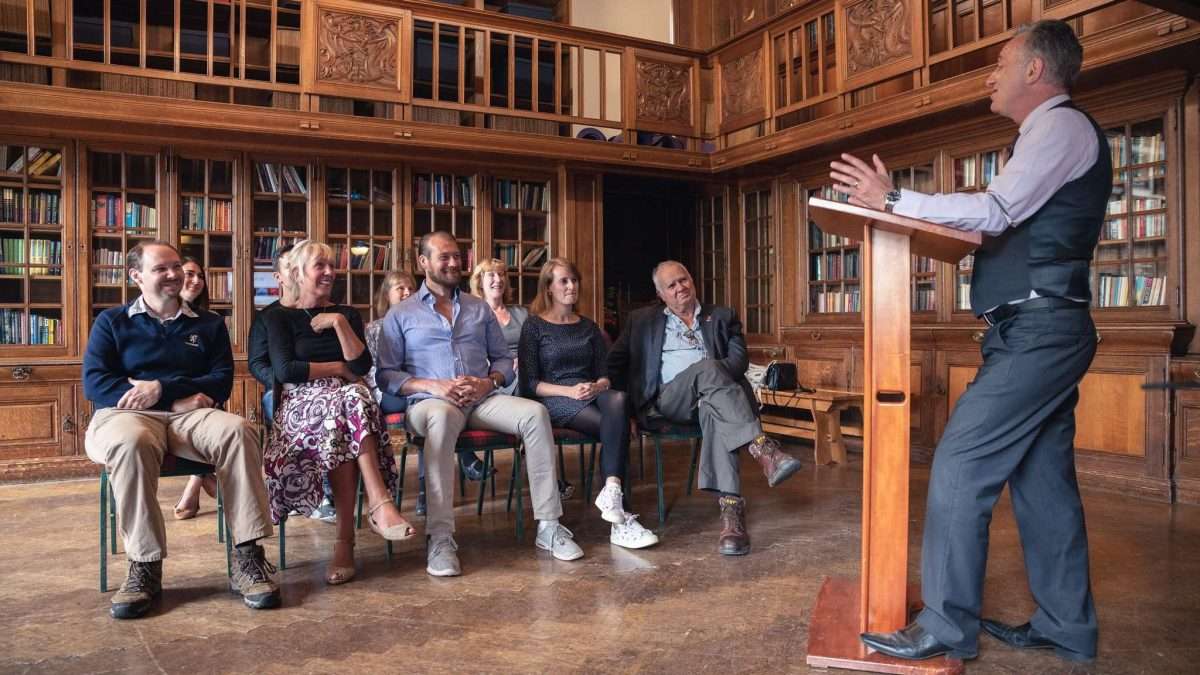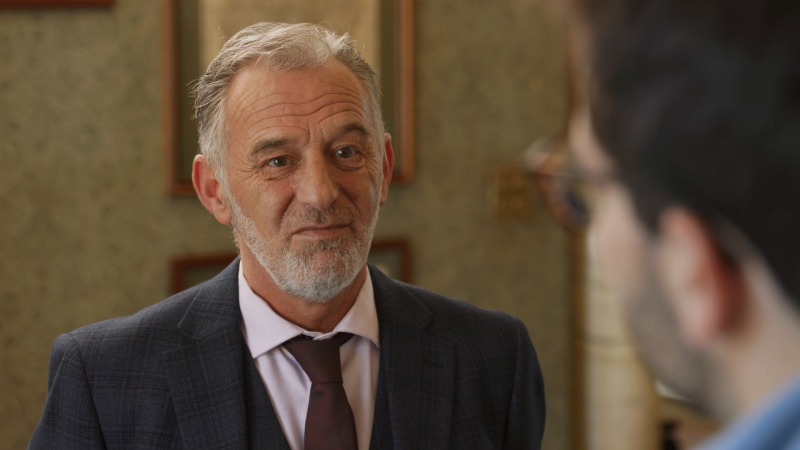
Take Control of Your Gambling Today
What Is Gambling Rehab?
If you feel that your gambling is out of control and you are compelled to gamble at an excessive rate, you may be in need of gambling addiction treatment at a rehab clinic in order to stop. At a gambling rehab like Castle Craig, you are removed from the ability to gamble, removed from triggers to gambling behaviour and you are immersed in specialist therapy delivered by an expert team of professionals.
Gambling rehab teaches you to manage cravings, avoid triggers and develop healthy coping skills for a life free from gambling. Gambling rehab also shows you how to build a support network of new friends in recovery which is crucial for maintaining motivation in your day-to-day life. It will also help you to address any co-occurring mental health issues (such as depression or anxiety) and also investigate the possible dangers of cross-addiction.
Gambling rehab can take two forms – inpatient or outpatient and self-help groups such as Gamblers Anonymous; these are explored below.
Table of Contents
What Is Gambling Addiction?
Compulsive Gambling is a behavioural addiction that can have severe consequences if not properly and promptly addressed. A 2023 UK Government review concluded that 0.5% of the adult population in the UK (about 200,000 people) have a gambling problem.
Recreational gambling can become an addiction due to the way the brain quickly learns that gambling can produce a peak of the pleasurable-releasing hormone, dopamine, that is released when you place a bet or win money. Dopamine is a reward signal to the brain and the brain quickly learns that this behaviour feels pleasurable, triggering gambling cravings seeking to repeat that behaviour.
What might start as the occasional bet on the lottery, a sports match or an online gambling game can eventually spiral into serious financial difficulties, problems at work, dysfunctional family life and suicide. A compulsive gambler often experiences feelings of guilt, shame, and anxiety, which can further exacerbate the addiction, leading to despair and sometimes, suicidal ideation.
Signs You Need Gambling Rehab
There are several warning signs that you have a gambling problem. The American Psychiatric Association’s Manual for Diagnostic and Statistics about Mental Disorders (DSM-5) lists the following diagnostic criteria used to identify problem gambling (now classified as Gambling Disorder).
- Do you find that you are preoccupied with gambling (for example, constantly thinking about past gambling experiences, planning the next gambling opportunity, or planning ways to get more money with which to gamble)?
- Do you need to gamble with increasing amounts of money to achieve the desired euphoria?
- Have you already made repeated unsuccessful efforts to control, cut back or stop gambling?
- Do you feel restless or irritable when attempting to cut down or stop gambling?
- Do you feel a sense of euphoria when you gamble, which makes you escape from problems or relieve unpleasant moods (e.g. feelings of helplessness, guilt, anxiety, or depression)?
- Are you running into financial problems that you are hiding from your family?
- After losing money gambling, do you often return to try and ‘break even and recoup your losses?
- Have you lied to family members, therapists, or others to conceal the extent of your involvement in gambling?
- Have you committed illegal acts such as forgery, fraud, theft, or embezzlement to finance gambling?
- Have you jeopardised or lost any significant relationships, jobs, or educational opportunities because of gambling?
- Have you manipulated others to provide you with money to relieve desperate financial situations caused by gambling (‘bailout’)?
If you or someone you care about can answer “yes” or even “maybe” to more than one or two, then, it’s time to evaluate whether or not you need professional gambling treatment.
The Reality of A Gambling Addiction
Below is the story of Helen (name changed to protect anonymity), who was treated by Chris Burn at Castle Craig.
Helen, a 28 year old accountant at a large construction company, was a trusted member of staff. She lived alone and was planning to marry James, a man of similar age and background whom she had met on a dating app. She had gradually acquired a gambling habit of playing slot machines and other monetised games on her phone and her computer at home. Over a six month period her habit grew, perhaps fuelled by stress at work and anxiety over her forthcoming marriage. She began losing large amounts of money until she had debts of around £50,000. Eventually this led her to steal from her employer. Shortly before the date of the marriage, she became desperate with thoughts of self-harm and she confessed her position to her partner James, who was shocked but prepared to help. They decided that honesty was the only solution and Helen gave her employer the bad news. Her employer followed company policy in prosecuting Helen but was otherwise supportive and Helen received a suspended sentence provided she entered rehab for her gambling problem. In rehab, she addressed her compulsive gambling and anxiety issues with her therapy group and personal therapist using Cognitive Behavioural Therapy and other person-centred therapies. After she left gambling treatment, she attended weekly meetings of her local Gamblers Anonymous group and has been gambling-free since.
What are the Benefits of Gambling Rehab?
Some of the benefits you will gain at our gambling rehab programme include:
-
Improved Mental Health
Many people suffer from mental health issues that exacerbate their addiction to gambling e.g. autism, bipolar disorder, ADHD, trauma, depression. Inpatient gambling rehab makes it possible to receive continuous professional treatment for both conditions at the same time under the care of an experienced mental health professional.
-
Rebuilding Family Relationships
Gambling addiction affects the whole family dynamic – husbands, wives, children, parents. It often leads to a huge financial burden on the family which takes an emotional toll resulting in broken relationships. Family therapy is a crucial part of treating gambling addiction and rebuilding trust.
-
Long-Term Goal Setting
Those who are gambling dependent will have experienced extreme financial difficulties and career problems. Gambling rehab provides you with time to reconsider and plan to rebuild your financial situation and focus on the next steps forward in your career and life.
-
Regaining Physical Health
Gambling addiction and the stress of financial difficulties also has an impact on the body, increasing the chances of developing physical complications, such as heart disease, poor fitness levels, poor nutrition. Inpatient drug treatment gives you access to a clinical team and fitness trainers, where you can receive a physical health assessment to identify areas of risk.
-
Support from Others
In rehab you will be able to build a new social network that supports your recovery through interacting with positive people with similar goals.

At Castle Craig we offer a structured gambling rehab programme lasting 4 – 12 weeks. Our rehab clinic treats all addictions, including gambling. Our inpatient gambling addiction treatment clinic set among beautiful hills and woodland, gives patients the opportunity to renew their health and lives without gambling.
The experience at Castle Craig is a retreat from gambling addiction and an experience of compassion, respect, recovery and a new perspective on life.
Your Gambling Addiction Recovery Begins Here
Our admissions team are here to support you in making the first step.
Treatment Options that Target a Gambling Problem
Rehab treatment for compulsive gambling may include outpatient therapy or a residential treatment programme, as well as self-help treatments like structured internet-based programs and telephone visits with a mental health professional.
Inpatient Rehab – What to Expect
Inpatient treatment in a residential rehab offers a 4-12 week rehab treatment programme where you will learn how to address the issues that have contributed to your gambling addiction to facilitate behavioural change. You will learn positive coping strategies designed to maintain your future addiction-free lifestyle.

Talking Therapies
The aim of gambling addiction therapy is to give the patient an understanding of themselves and their addiction from which they can develop new ways of dealing with their lives. Acceptance and peace of mind are important if people are to maintain happy sobriety after treatment. Therapy also explores the patient’s background and identifies any underlying mental health issues such as trauma that could have exacerbated the addiction.
Gambling therapy takes place individually between you and a therapist, or in a small group, led by a professional. Family therapy and complementary therapies such as art therapy, creativity, mindfulness and meditation also contribute to overall well-being and coping skills for the future.
The Castle Craig gambling addiction treatment programme includes a range of evidence-based therapeutic methods, such as the 12-step model, which provides guiding principles for ongoing recovery from gambling addiction. Cognitive behavioural therapy (CBT) is another method we use, helping you to identify and address the underlying triggers and causes of your gambling problem. Other talking therapies available include dialectical behaviour therapy (DBT) and mindfulness.
Outpatient Gambling Rehab
A more flexible and lower cost option for problem gambling is outpatient treatment, while not as intensive a form of therapy, a programme like Castle Health’s 28-Day Online Programme can be a more cost-effective option.
Free Gambling Groups and Helplines
- Gamblers Anonymous (GA) is a network of self-help groups based on the 12 Step model pioneered by Alcoholics Anonymous, where compulsive gamblers meet to share their experience, example and support in a non-confrontational setting. Their sole purpose is to stay free of compulsive gambling. of problem gambling. There are no counsellors or professionals present.
- Gamcare has been offering support and advice for problem gambling since 1997 and operates the National Gambling Helpline. It also operates a Women’s programme for female problem gamblers.
- The Royal Society for Public Health addresses gambling problems through the Gambling Health Alliance.
- Other charities that can give helpful advice to problem gamblers include the Young Women’s Trust and Gambling Therapy a free advice and treatment service started by the Rev Gordon Moody in 1971.

Castle Craig’s Approach to Care
Since 1988, Castle Craig’s compulsive gambling treatment programme has been trusted by people from around the world who are suffering from gambling addiction. With care and confidentiality we constantly strive for innovation and excellence in what we do. Our ethos is based on compassion, respect and a commitment to person-centred, evidence-based treatment.
How to Access Our Gambling Addiction Treatment
It is hard to overcome any compulsive disorder on your own. Seeking professional gambling addiction treatment is not a sign of weakness but a sensible course of action. At Castle Craig, we offer a gambling rehab programme, rooted in the 12 Steps, that has been created with over 35 years of experience. Our gambling addiction programme contains a range of evidence-based therapy options to treat accompanying mental health problems.
Choosing the Right Rehab Programme
We believe that the treatment environment is just as important as the treatment itself, and we want you to feel comfortable and welcome during your time here. Castle Craig is a family-owned estate, and private bedrooms in the castle, which is a Georgian listed building, offering en-suite bedrooms and sweeping views over the Scottish hills.
When you are choosing a rehab programme it is important to consider the level of care, the treatment approach offered, and the experience of the therapists. Gambling addiction is a unique condition and our therapists are experienced in dealing with intense emotions and offering guidance on the serious financial consequences that are often created by a problem gambler. It’s important to look for a rehab programme that addresses the physical, emotional, and psychological aspects of excessive gambling.
At Castle Craig Hospital we treat a large number of people with a gambling problem that may be sometimes present alongside substance misuse, alcohol problems and other mental health problems.
The Importance of Therapy for Family Members
Family therapy is also usually provided at rehab. During these sessions your partner or other relatives will visit for discussion, guided by an experienced psychotherapist. Gambling rehab has a devastating effect on the family and spouses and children are impacted by the breakdown of trust and loss of financial security which compounds the stress and disappointment they may also feel towards the patient. These issues need to be addressed in therapy so that the family can resolve their issues and move forward positively.
Gambling Rehab Aftercare
Treating gambling addiction at an inpatient rehab centre also involves considering ongoing therapy, post-rehab. Continuing Care following rehab is essential to maintain therapeutic progress and avoid relapse. Castle Craig offers online support, weekly group therapy, a recovery forum and an alumni network that aims to help you stay on track.
Answers to Your Questions on Gambling Rehab
-
How Long Does Gambling Rehab Treatment Take?
Because gambling addiction is an ongoing illness where relapse is always possible, your recovery must focus on therapeutic skills that you can use to maintain your new lifestyle. Inpatient gambling rehab takes a minimum of 28 days, if you have a dual diagnosis such as trauma, we recommend longer stays of up to 90 days as this time frame allows for a more supported transition to sobriety. After rehab, recovery is maintained via support groups, therapy, and periods of stepped-up care as needed.
-
How Much Does Gambling Rehab Cost?
Gambling addiction often comes hand in hand with a huge financial toll. For those seeking a four-week gambling rehab programme, cost is an important factor, with many needing to borrow money from family to meet the bill. Residential gambling rehab is a high-quality, private treatment and can cost upwards of £3,000 per week (on the other hand, untreated gambling behaviour can produce losses far greater than this). The costs include psychiatric care, intensive therapy, accommodation, and use of facilities.
-
Do Rehabs Address Financial Problems?
An important part of the Gambling treatment programme at Castle Craig is to address the financial consequences of gambling thoroughly and honestly. This will involve itemising and categorising the amounts including debt and illegal activity. We also advise on debt repayment and the making of amends.
Start Your Journey to Recovery Today
If a gambling disorder is causing your finances to spiral out of control, it’s critical for your future stability that you get help as soon as possible to help you stop gambling. The consequences of compulsive gambling only escalate with time and gambling addiction treatment is recommended as early as possible. We are here to help.